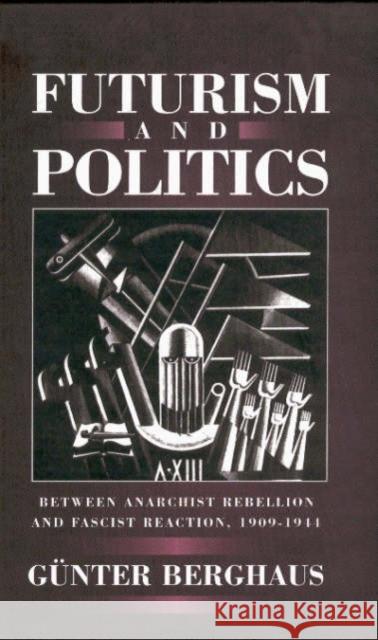Futurism and Politics: Between Anarchist Rebellion and Fascist Reaction 1909-1944 » ksi─ů┼╝ka
Futurism and Politics: Between Anarchist Rebellion and Fascist Reaction 1909-1944
ISBN-13: 9781571818676 / Angielski / Twarda / 1996 / 256 str.
"Futurism was the state of the Fascist regime" - this is the view one encounters in most books written on Futurist art and literature. Whilst there can be no doubt about Futurist involvement with the founding of the fascist movement, little is known about the internal relationship between Futurists and Fascists in the years 1918-22, nor about the reasons for the Futurists' departure from the Fascist movement in 1920, or about Futurist opposition to (and even armed struggle against) the Fascist regime after 1924. Whilst the public documents testifying to Futurist support of Mussolini are well known, little has been written about Futurist anti-fascism camouflaged as official adherence to the regime. This study, based primarily on unknown or unpublished documents discovered in state archives and private collections, presents a new andfar more complex picture of the relationship of the two movements than has previously been shown by critics and historians. Gunter Berghaus received his Ph.D. in Theatre Studies and his Habilitation from the Free University of Berlin; he taught at the University of London and now holds a Readership in Theatre History and Performance Studies at the University of Bristol.
"Futurism was the state of the Fascist regime" - this is the view one encounters in most books written on Futurist art and literature. Whilst there can be no doubt about Futurist involvement with the founding of the fascist movement, little is known about the internal relationship between Futurists and Fascists in the years 1918-22, nor about the reasons for the Futurists departure from the Fascist movement in 1920, or about Futurist opposition to (and even armed struggle against) the Fascist regime after 1924. Whilst the public documents testifying to Futurist support of Mussolini are well known, little has been written about Futurist anti-fascism camouflaged as official adherence to the regime. This study, based primarily on unknown or unpublished documents discovered in state archives and private collections, presents a new andfar more complex picture of the relationship of the two movements than has previously been shown by critics and historians.G├╝nter Berghaus received his Ph.D. in Theatre Studies and his Habilitation from the Free University of Berlin; he taught at the University of London and now holds a Readership in Theatre History and Performance Studies at the University of Bristol.











